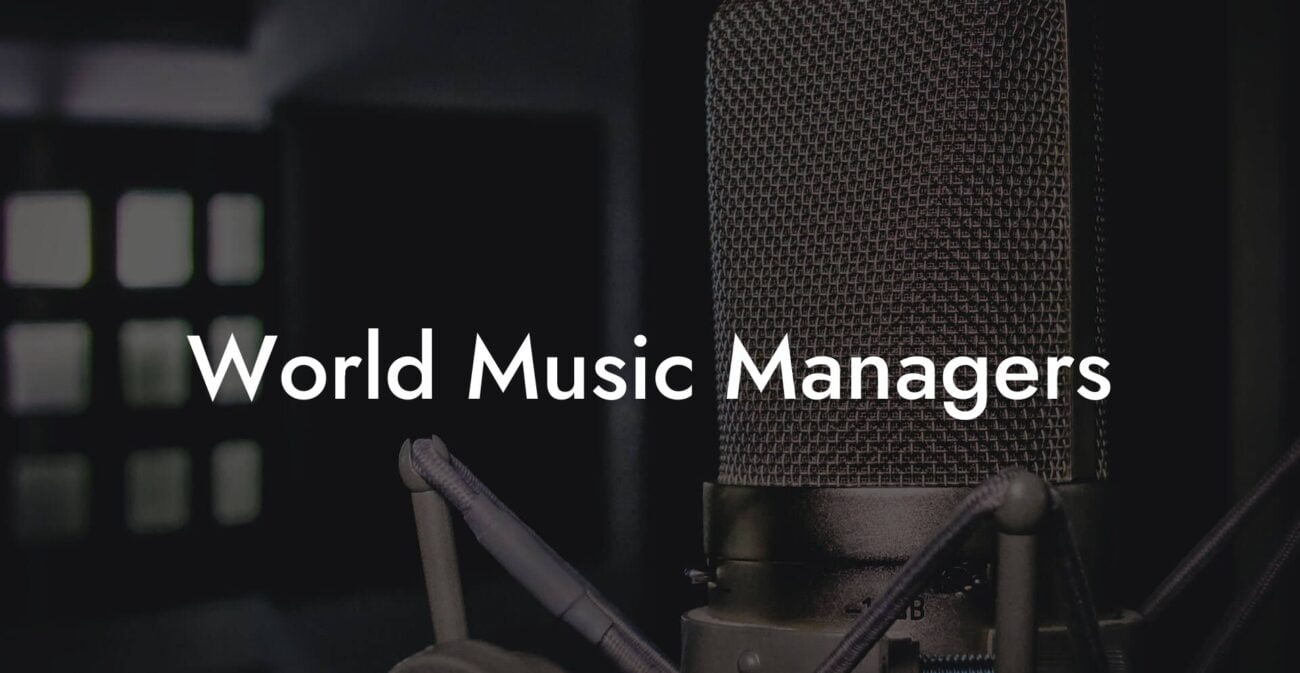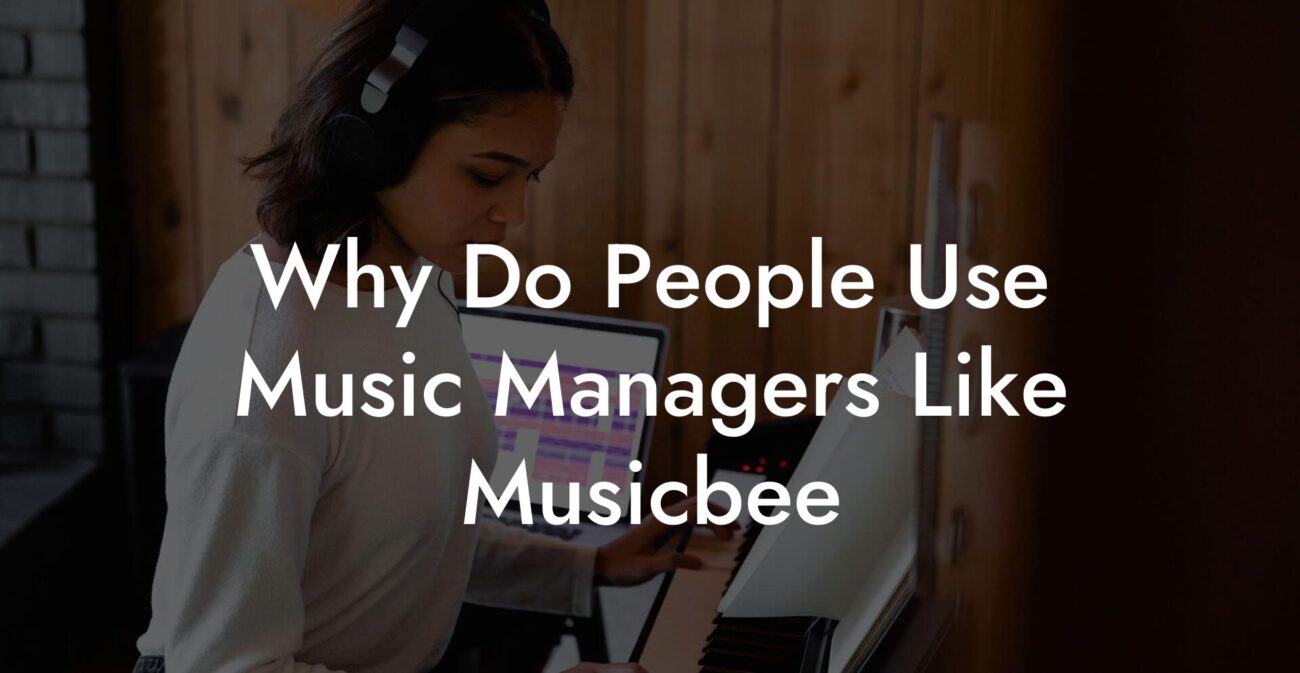Ever sat back with your headphones on and wondered, “How the heck do music managers actually get paid?” If you’re a budding songwriter or an aspiring musician trying to make sense of the tangled web of contracts and commissions, you’re in the right place. Today, we’re diving into the numbers, the nuances, and the notorious percentages behind what managers typically earn from the world of music. So, buckle up, because we’re about to break it down in a way that’s as engaging as your favorite track!
Looking to write your next song? Transform your creative ideas into songs that people will love, and skyrocket your music career with Lyric Assistant. The perfect songwriting assistant. Find out more →
Quick Links to Useful Sections
- Understanding the Role of a Music Manager
- The Basics: What Percent Do Music Managers Generally Get?
- Why Do Managers Get Paid a Percentage?
- Breaking Down the Commission Structure
- Gross vs. Net Income
- Sliding Scale Commissions
- Additional Fees and Expenses
- How Negotiations Play Out: Tips for Artists
- Research the Norms
- Negotiate Beyond the Percentage
- Transparency is Key
- Real-Life Scenarios: How Manager Commissions Impact Success
- The Up-and-Comer: Starting Out Strong
- The Rising Star: Scaling Up
- The Established Hitmaker: Negotiating Down
- The Impact of Technology on Managerial Deals
- Balancing the Scale: Pros and Cons of Sharing Your Success
- The Pros
- The Cons
- Negotiating Contracts and Protecting Your Interests
- 1. Get Everything in Writing
- 2. Specify Revenue Streams
- 3. Include a Termination Clause
- 4. Seek Legal Advice
- The Evolution of Managerial Deals in the Digital Era
- Resources and Community Support: Your Next Steps
- Educate Yourself
- Network, Network, Network
- Utilize Digital Tools
- Consult the Experts
- How Music Managers Are Adapting for the Millennial and Gen Z Era
- Case Studies and Success Stories: Learning from the Pros
- Case Study 1: The Indie Sensation
- Case Study 2: The Viral Social Media Star
- Case Study 3: Turning Hits into Long-Term Careers
- Future Trends: What’s Next in Managerial Compensation?
- Empowering Your Music Career with Lyric Assistant
- FAQ: What Percent Do Managers Get and More
- Your Roadmap to a Successful Music Career
Understanding the Role of a Music Manager
Music managers are like the behind-the-scenes wizards of an artist’s career. They work tirelessly to shape your career, negotiate deals, book gigs, and sometimes even offer a shoulder to cry on when that one song just doesn’t hit the mark. These professionals serve as your advocate, guide, and sometimes even your best friend in the chaotic music industry.
In simple terms, a manager’s job is to handle the business so you can focus on your art. But if you’ve ever wondered how they get paid for all that hard work, then it’s time to pull back the curtain on those commission percentages that might have you scratching your head.
The compensation for managers can be a tricky topic, often leaving aspiring musicians confused about what percentage of your earnings is going to that person helping steer your career. Let’s jump in and explore exactly what percentage managers typically get, why those numbers vary, and how you can negotiate a deal that works for both parties.
The Basics: What Percent Do Music Managers Generally Get?
When it comes to manager commissions, you might hear numbers like 15%, 20%, or sometimes even lower percentages for emerging talents. Traditionally, music managers earn a commission ranging from 10% to 20% of your gross income from various revenue streams—everything from live performances to record sales.
Most often, a 15% to 20% commission is the industry standard for artists who are in the early-to-mid stages of their careers. However, if you’re already a household name, those percentages might be negotiated down, since managers working with mega-stars are balancing risk with the promise of high-volume earnings.
Let’s break it down with a quick example. Imagine you just landed a gig that nets you $10,000. Under a standard 15% commission agreement, your manager would take $1,500 off the top, leaving you with $8,500 to reinvest in your music, go on tour, or simply stash away for a rainy day.
It’s important to note that these percentages can vary depending on the specific agreement laid out in your contract. Some managers might work on a sliding scale, adjusting their commission based on the level of income or the type of revenue (like merchandise versus performances). The key takeaway? Always read the fine print and understand exactly what your manager is getting paid—and how.
Why Do Managers Get Paid a Percentage?
At first glance, dedicating a cut of your earnings to someone who is handling business might seem steep, but here’s the kicker: a good manager can amplify your success in ways that far exceed their commission. Think of it this way—your manager is essentially your personal business partner. They invest their time, connections, and expertise into shaping your career trajectory, giving you access to opportunities that might otherwise be out of reach.
Consider this: a top-notch manager doesn’t just negotiate deals—they build relationships with record labels, secure gig bookings, and even assist with branding and marketing efforts. Their network is your network. By taking a small percentage of your income, they effectively share the risk and reward that comes with building a music career.
For emerging artists, this percentage may seem like a cost, but it’s really an investment in your future. A dedicated manager can open doors, optimize your career strategy, and help you navigate the ever-changing landscape of the music industry. The bottom line is that paying a commission is not just about paying for services rendered—it’s about aligning incentives so that both you and your manager are committed to your success.
Breaking Down the Commission Structure
When you’re new to the game, the details of a manager’s commission structure can feel like decoding a secret language. Let’s demystify it:
Gross vs. Net Income
One of the first questions you’ll need to ask is whether your manager’s commission is calculated on your gross income (before expenses) or your net income (after expenses). Most managers prefer a percentage of the gross income because it represents the total revenue before deductions. This could include money from touring, merchandise, streaming, and even advances.
On the flip side, a net income percentage might seem more favorable to artists, but it’s less common. Make sure you clarify which one your contract uses, as this can have a significant impact on how much your manager ultimately earns.
Sliding Scale Commissions
Some savvy managers opt for a sliding scale commission structure that adjusts based on your earnings. For instance, the agreement might stipulate 20% for the first $100,000 in revenue and then drop to 15% for any income above that threshold. This approach can be a win-win: it rewards your early success and allows both parties to share in the benefits of growth without feeling penalized for increased earnings.
Additional Fees and Expenses
Beyond the commission percentage, contracts may also outline additional fees for services such as marketing, travel, or administrative support. While these aren’t part of the “music manager commission” per se, they play an important role in your overall budget. Always get a clear picture of what’s included, and don’t hesitate to ask for an itemized list.
Understanding these breakdowns can make a world of difference when negotiating terms with a prospective manager. Knowledge is power, and knowing what each percentage represents will help you make an informed decision about who’s best to partner with.
How Negotiations Play Out: Tips for Artists
Negotiating your contract can feel like stepping into a lion’s den, but with the right approach, it can be more like a strategic chess match. Here are some down-to-earth tips to help you navigate the process:
Research the Norms
Before you meet with a manager, arm yourself with knowledge. Understand the industry standards for commissions (typically between 15% and 20%). Knowing the norm gives you a solid foundation to negotiate from.
It’s also useful to get insights from fellow musicians, mentors, or trusted industry insiders. Their experiences can offer valuable context and help you set realistic expectations when discussing percentages.
Negotiate Beyond the Percentage
While the commission is important, remember that the manager’s role encompasses much more. Negotiate for a fair contract that details responsibilities, expected deliverables, and performance benchmarks. A manager who is proactive and committed to your growth is worth their commission.
Sometimes, it might be beneficial to propose performance-based incentives—bonuses for reaching specific milestones or targets can keep your manager motivated and directly tied to your success.
Transparency is Key
Clarity goes a long way. Lay all your cards on the table before signing anything. Ask for a clear breakdown of how commissions will be calculated, and insist on transparent accounting practices. If something seems murky, take the time to get it sorted. Your financial future deserves nothing less.
Negotiate like you’re negotiating a band name—clear, confident, and with a little bit of swagger. After all, this is your future, and knowing exactly what percentage your manager gets will empower you to make smarter decisions.
Real-Life Scenarios: How Manager Commissions Impact Success
To paint a clearer picture of how manager commissions work in real life, let’s explore a few scenarios that might resonate with you:
The Up-and-Comer: Starting Out Strong
Meet Alex, an ambitious singer-songwriter who just released their debut EP. Alex’s contract with a small, agile management team stipulates a 15% commission on all gross earnings. In the early stages, every dollar counts, and while 15% might feel like a chunk of the pie, Alex’s manager is hustling to secure gigs, negotiate studio time, and connect Alex with seasoned producers. Through consistent efforts, Alex’s revenue quickly grows, and the manager’s strategic negotiations ensure that every performance unlocks further networking opportunities.
For emerging artists like Alex, a slightly higher commission is often justified by the hands-on support and career-building efforts provided by their manager.
The Rising Star: Scaling Up
Then there’s Jamie, who’s been in the scene for a couple of years and is starting to receive attention beyond local shows. Jamie’s deal includes a sliding scale commission: 20% on the first $100,000, dropping to 15% afterward. This arrangement reflects the increased risks taken early on and a reward structure that incentivizes both the artist and the manager to scale up earnings. As Jamie’s career gains momentum, the reduced commission percentage on higher earnings means more money stays in the artist’s pocket—even as the manager continues to invest in bigger promotional opportunities.
The Established Hitmaker: Negotiating Down
Finally, consider Taylor, a well-known artist with chart-topping hits under their belt. With a proven track record, Taylor has the leverage to negotiate a lower commission percentage—sometimes as low as 10% or even a flat fee for certain deals. In cases like this, the manager’s commission isn’t just about their day-to-day involvement; it’s also about maintaining a lucrative long-term partnership where both parties benefit from Taylor’s sustained success.
These examples illustrate that while commission percentages are a crucial factor, the value a manager brings to the table can vary widely based on how established you are in the industry and what your next big break might be.
The Impact of Technology on Managerial Deals
In today’s digital age, the music industry is evolving faster than ever, and so are the ways in which music managers secure deals and track revenue. With emerging online platforms and streaming services dominating the revenue landscape, managers are now leveraging data analytics, digital marketing tools, and cloud-based accounting systems to refine their strategies and maximize earnings.
For musicians, this shift means increased transparency in how your income is generated and distributed. Technology allows for real-time tracking of royalties, streaming revenue, and even social media engagement—all of which can feed into how a manager negotiates and justifies their commission percentage. This trend is empowering both sides of the deal: artists gain clearer insights into their financial performance, and managers can demonstrate the tangible value they add.
At the same time, new tech tools are democratizing access to industry insights. Platforms like Lyric Assistant not only help you write killer lyrics effortlessly but also offer resources and community support for navigating careers. The digital revolution in music management is all about creating win-win situations where everyone is working smarter, not harder.
Balancing the Scale: Pros and Cons of Sharing Your Success
It’s natural to have mixed feelings about sharing a percentage of your earnings. After all, every dollar counts when you’re trying to build your dream career. But let’s take a closer look at the advantages and potential drawbacks of working on commission:
The Pros
- Aligned Incentives: Because your manager’s income is directly tied to your success, they have every reason to hustle and make sure you do well.
- Access to Expertise: A savvy manager brings in-depth industry knowledge, invaluable connections, and negotiation skills that can fast-track your career.
- Risk Sharing: When you’re starting out, every bit of help counts. A commission-based model means your manager shares in the ups and downs of your journey.
The Cons
- Less Immediate Income: Paying a percentage of your earnings means that, especially in the early stages, less money is available for reinvestment.
- Potential for Misaligned Goals: If a manager is more interested in short-term gains rather than building a sustainable career, the partnership might not work out in your favor.
- Contractual Complexity: Understanding the fine print of commission contracts can be daunting, and misinterpretations can lead to unforeseen costs.
Ultimately, the decision to enter into a commission-based agreement comes down to weighing the pros and cons. If your manager is truly invested in your success, the benefits of their industry know-how and network can far outweigh the cost.
Negotiating Contracts and Protecting Your Interests
Regardless of the commission percentage, the key to a successful partnership is a well-negotiated contract that protects both your interests and those of your manager. Here are some essential guidelines to consider when entering into a management agreement:
1. Get Everything in Writing
Verbal agreements are as outdated as a mixtape from the 90s. Ensure that all terms, including commission percentages, duration, and responsibilities, are clearly outlined in a written contract.
2. Specify Revenue Streams
Clearly define which revenue streams the commission applies to. Does it cover touring, recording, merchandising, brand endorsements, or all of the above? A detailed contract helps you avoid misunderstandings down the line.
3. Include a Termination Clause
Life is unpredictable, and your career path may shift unexpectedly. A well-drafted contract should include provisions that allow for termination under certain conditions. This protects you if the partnership stops meeting your needs.
4. Seek Legal Advice
The legal world of music contracts can be more complex than a never-ending bridge in your favorite song. Don’t hesitate to hire an entertainment lawyer who can help you understand the nuances of the deal and ensure that your rights are fully protected.
Remember, a solid contract is the bedrock of a successful working relationship. It sets clear expectations and provides a framework for resolving disputes, so you can focus on creating great music.
The Evolution of Managerial Deals in the Digital Era
Gone are the days when a manager’s role was limited to booking gigs and schmoozing with record execs. Today, the digital landscape has transformed the way music deals are structured and how managers earn their cut. With streaming platforms, social media, and independent distribution channels, revenue is more diversified than ever before.
This digital evolution has led to more flexible and innovative management agreements. For example, some managers now use performance-based bonuses or tiered commission schedules that factor in social media engagement and streaming metrics. The digital metrics provide a transparent way to measure success and align the manager’s efforts with your overall brand.
Digital tools and platforms like Lyric Assistant empower musicians to craft top-tier lyrics quickly, which in turn enhances your marketability. With an effective online presence and digital strategy, both you and your manager can benefit from a diversified income stream that goes far beyond traditional revenue sources.
Resources and Community Support: Your Next Steps
Navigating the managerial landscape is no easy feat, but you don’t have to do it alone. As an artist in the modern music industry, you have a wealth of resources and community support at your fingertips. From online forums and industry blogs to mentorship programs and masterclasses, there are countless avenues to deepen your understanding of music management contracts.
Here are a few actionable steps to empower your journey:
Educate Yourself
Dive into industry literature, attend workshops on music business, and follow seasoned professionals on social media. Knowledge is your best tool against the complexities of contract negotiation.
Network, Network, Network
Connect with fellow musicians, managers, and industry insiders. Online communities like dedicated Facebook groups or even subreddits for independent artists provide a space for you to share experiences and gain valuable insights.
Utilize Digital Tools
Make the most of digital platforms that help streamline your creative process and business management. For instance, Lyric Assistant is a fantastic resource that enables musicians to write powerful, emotion-packed lyrics effortlessly—allowing you to focus more on growing your career.
Consult the Experts
Consider seeking advice from experienced managers or entertainment lawyers before signing any contracts. Their hands-on experience in the industry can offer perspectives that you might not find through self-study alone.
Remember, the digital era has leveled the playing field. Empower yourself with knowledge and the right resources, and you’ll be better equipped to make decisions that propel your music career forward.
How Music Managers Are Adapting for the Millennial and Gen Z Era
Today’s music industry is as much about authenticity and digital savviness as it is about raw talent. Millennial and Gen Z artists are revolutionizing how music is created, distributed, and marketed. This generation of musicians often seeks managers who understand the dynamics of social media virality, streaming algorithms, and fan engagement.
Forward-thinking managers are now incorporating digital strategy into their workflow, ensuring that every post, tweet, and TikTok contributes to the holistic growth of your brand. For many emerging artists, this blend of old-school management and new-age digital know-how is the secret sauce to staying relevant and profitable in an ever-changing industry.
The days of purely traditional album deals are fading away. In their place, innovative revenue-sharing models that include sync licensing, influencer marketing, and virtual concerts are on the rise—necessitating a flexible approach to manager commissions. The manager’s role is evolving, and so too are the percentages they earn. The modern manager has to be agile, creative, and deeply informed about the digital pulse of today’s music scene.
If you’re a millennial or Gen Z artist, finding a manager who aligns with your vision and digital ambitions is absolutely crucial. Keep your eyes peeled for signs of creativity, a digital-first mentality, and an unapologetic passion for music that mirrors your own.
Case Studies and Success Stories: Learning from the Pros
Sometimes, the best way to understand how managerial commissions play out in the real world is to listen to success stories from those who’ve navigated the maze before you. Here are a few case studies that showcase how different artists and their managers have struck the perfect balance:
Case Study 1: The Indie Sensation
Indie artist Casey started out playing small gigs in coffee shops and quickly realized that a dedicated manager could accelerate their momentum. Although Casey agreed to a 20% commission initially—a reflection of the risk taken by the manager—the rapid growth in online streams and live performance revenue soon justified this share. With clear, transparent tracking of income and a sliding scale commission later in the contract, both Casey and the manager celebrated a win-win scenario, paving the way for a record deal.
Case Study 2: The Viral Social Media Star
Social media influencer turned musician Jordan harnessed the power of digital platforms to launch a career that exploded overnight. With a savvy manager who was on top of the latest trends in streaming and social media engagement, Jordan negotiated an agreement that blended a flat commission with performance bonuses. This allowed the manager to earn a fair percentage while ensuring that every viral hit translated into a tangible reward. The result? A skyrocketing career that redefined what it means to be a modern artist.
Case Study 3: Turning Hits into Long-Term Careers
Veteran artist Sam, who had been in the industry for a decade, decided to revamp their career strategy with the help of a new management team. With a deep understanding of both traditional and digital revenue streams, Sam’s manager negotiated a contract that began at 15% on gross income but included detailed benchmarks for performance reviews. Over time, as Sam’s popularity soared and revenue diversified, the manager’s commission was adjusted downward on the highest-earning streams, ensuring that both parties benefited from long-term, sustainable success.
These case studies highlight that while percentages provide a baseline, the true value lies in how managers tailor their approach to suit the artist’s evolving career. Whether you’re just starting out or reinventing your image as an established musician, learning from these real-world examples can guide you in making the best contractual decisions.
Future Trends: What’s Next in Managerial Compensation?
The music industry is constantly evolving, and so is the way managers are compensated. With increasing emphasis on digital platforms and data-driven decision making, expect to see more flexible commission structures that reflect the nuances of modern revenue streams. For example, managers may soon adopt more hybrid models that combine fixed fees for certain services with variable commissions based on measurable digital engagement.
Additionally, as new revenue streams like virtual reality concerts, NFTs, and immersive fan experiences gain traction, managers are likely to adjust their percentages to reflect these emerging opportunities. This means that what worked a decade ago might not necessarily apply in today’s dynamic landscape.
As an artist, staying informed about these trends will be crucial. Constantly evaluate your manager’s role in this shifting paradigm and be open to renegotiating terms as your career evolves. The future is digital, and the smartest partnerships will be those that adapt to change while keeping the artist’s vision in focus.
Empowering Your Music Career with Lyric Assistant
If you’re diving into the music scene with dreams of chart-topping hits and unforgettable live performances, remember that your creative process is just as important as the business deals you negotiate. At Lyric Assistant, we’re here to empower you with the tools you need to write lyrics that resonate with your audience—effortlessly.
Whether you’re brainstorming that catchy hook or struggling with writer’s block, our platform offers innovative features designed to make the songwriting process smoother and more inspiring. With our intuitive lyric-generation tools and community-driven support, you can focus on what you do best: creating music that moves people.
As you navigate contract negotiations and manager commissions, know that every great artist relies on both creative passion and strategic business decisions. Let Lyric Assistant be your creative partner as you build a career that strikes the perfect chord between art and commerce.
FAQ: What Percent Do Managers Get and More
We know you have questions, and we’ve got answers! Below are some frequently asked questions about music manager commissions, contracts, and navigating the industry.
1. What percentage do music managers typically get?
Most music managers earn between 10% and 20% of your gross income from various revenue streams, though the standard for emerging artists is usually around 15-20%.
2. Do managers get paid on gross or net income?
Typically, managers receive a percentage based on your gross income, which is calculated before deducting expenses. However, always confirm the specifics in your contract.
3. How does a sliding scale commission work?
A sliding scale commission means that the percentage your manager earns decreases as your income increases. For example, you may start at 20% for the first $100,000 and then drop to 15% for earnings above that threshold.
4. Are additional fees common in management contracts?
Yes, some contracts include extra fees for services such as marketing, travel, or administrative support. Always request a detailed breakdown to know what is included.
5. Can I negotiate my manager’s commission?
Absolutely! Negotiation is a key part of any management contract. Factors like your experience, revenue potential, and the services provided by your manager can influence the final percentage.
6. How do digital revenue streams affect commission structures?
With the rise of streaming platforms, social media, and new digital revenue channels, managers are increasingly adopting flexible commission models that take into account various income sources.
7. What should I do before signing a management contract?
Make sure to consult an entertainment lawyer, thoroughly research industry norms, and have an in-depth discussion with your prospective manager about expectations, responsibilities, and performance benchmarks.
8. How do managers add value beyond taking a commission?
Beyond earning a commission, a good manager offers industry expertise, negotiation skills, networking opportunities, and strategic guidance that can significantly boost your career.
9. Is a lower commission always better?
Not necessarily. A lower commission might seem attractive, but it’s important to consider the level of support, expertise, and resources that come with a skilled manager. The best deal balances cost with value.
10. How are future trends likely to change manager commissions?
As the music industry continues to evolve—especially with digital innovations—manager commissions may become more flexible, incorporating elements like performance bonuses and variable percentages tied to specific revenue streams.
Your Roadmap to a Successful Music Career
Deciphering manager commission percentages might seem complicated at first, but armed with knowledge and the right tools, you can confidently navigate the business side of music. By understanding how commissions work, knowing what to expect in a management contract, and staying informed about industry trends, you’re well on your way to forging a career that resonates both artistically and financially.
Every decision you make—from negotiating contracts to choosing a manager who truly understands your vision—sets the stage for your ultimate success. Remember, while the percentages represent a share of your earnings, the true value lies in the collaborative journey of growing your music, fan base, and brand.
At Lyric Assistant, we believe that your creative spirit deserves to shine without being bogged down by industry complexities. Use our platform to elevate your songwriting, streamline your creative process, and focus on what truly matters: making music that moves the world.
So whether you’re just starting out or already on your way to stardom, embrace the journey, negotiate wisely, and let your passion guide you to new heights. Your music career is your masterpiece—make sure every percentage, every deal, and every lyric reflect the unique artist you are.
Here’s to your success on stage and behind the scenes—keep hustling, keep creating, and get ready to rock the world!














